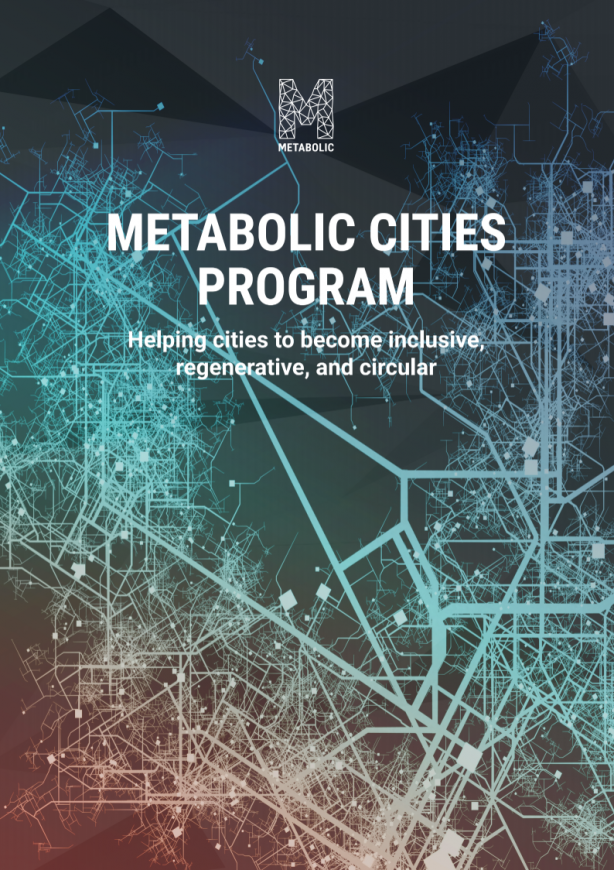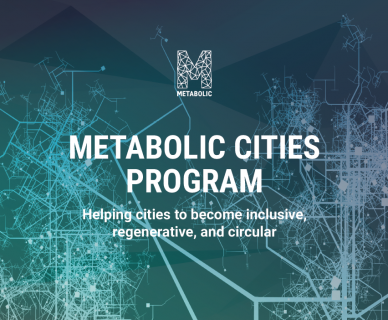Given their immense ecological footprint and impact on human wellbeing, it is critical that cities make the transition to become sustainable and circular. Yet accessing the right resources and crafting the right policy isn’t easy. The Metabolic Cities Program is here to help.
For more information, read about the program here or look at the full Metabolic Cities Program brochure.
Get in touch by emailing <a>cities@metabolic.nl</a> or call +31 (0) 203690977

What is the goal of the project?
The Metabolic Cities Program guides cities to make data-driven decisions, steers and accelerates their progress to becoming sustainable leaders, and connects them to a change-driven network of other pioneers. With the Program, we are creating a knowledge community where cities can access joint research trajectories, discounted services, a network of peers and partners, and a growing library of data, tools, and best practices.
We will host one or more new joint research trajectories each year. These trajectories seek to answer critical challenges and provide a toolkit for developing smart policy and infrastructure.
Our first research trajectory will focus on spatial intelligence, in which cities learn how to apply policy goals spatially, understand the opportunities and barriers present in different neighborhoods, define KPIs to track progress, and pinpoint where, and how to jump-start implementation.
What is the result of the project?
The year-long research trajectory helps cities implement city-wide sustainability goals at a neighbourhood level through data modeling tools and our advanced spatial planning approach. Through the program, cities learn how to apply their policy goals spatially, define KPIs to track progress, and engage with local stakeholders to jump-start implementation. Cities share lessons learned and can build partnerships around similar challenges and interventions. Key tools and takeaways include:
- Smartly defined goals for circularity on both neighborhood and city level.

- A monitoring framework to evaluate the speed at which the transition to circularity, at both a city and neighborhood level.

- Typology of their neighborhoods and a suitability analysis for sustainability/circularity goals, with neighborhood-level heatmaps.

- A policy toolkit with practical instruments that can be used for selecting interventions or conducting urban planning. These will include guidelines for an urban plan, circular tendering, methods for designing circular infrastructure, and integrating cleantech.

- Collective datasets that include shared data and modeling library across participating cities who opt in. These form the basis for future spatial analysis and policies, and a foundation for the development of geospatial tools.

- Tools for implementation that simplify the process of conducting additional spatial analyses and tracking KPIs.
Who initiated the project and which organizations are involved?
What is the next step?
Sign-ups for the first Spatial Intelligence trajectory are now open until the end of May. Email cities@metabolic.nl or call +31 (0) 203690977
What can other cities learn from your project?
The Program will consist of a knowledge community where cities can access joint research trajectories, discounted services, a network of peers and partners, and a growing library of data, tools, and best practices. Cities across Europe can share lessons learned and can build partnerships around similar challenges and interventions.




